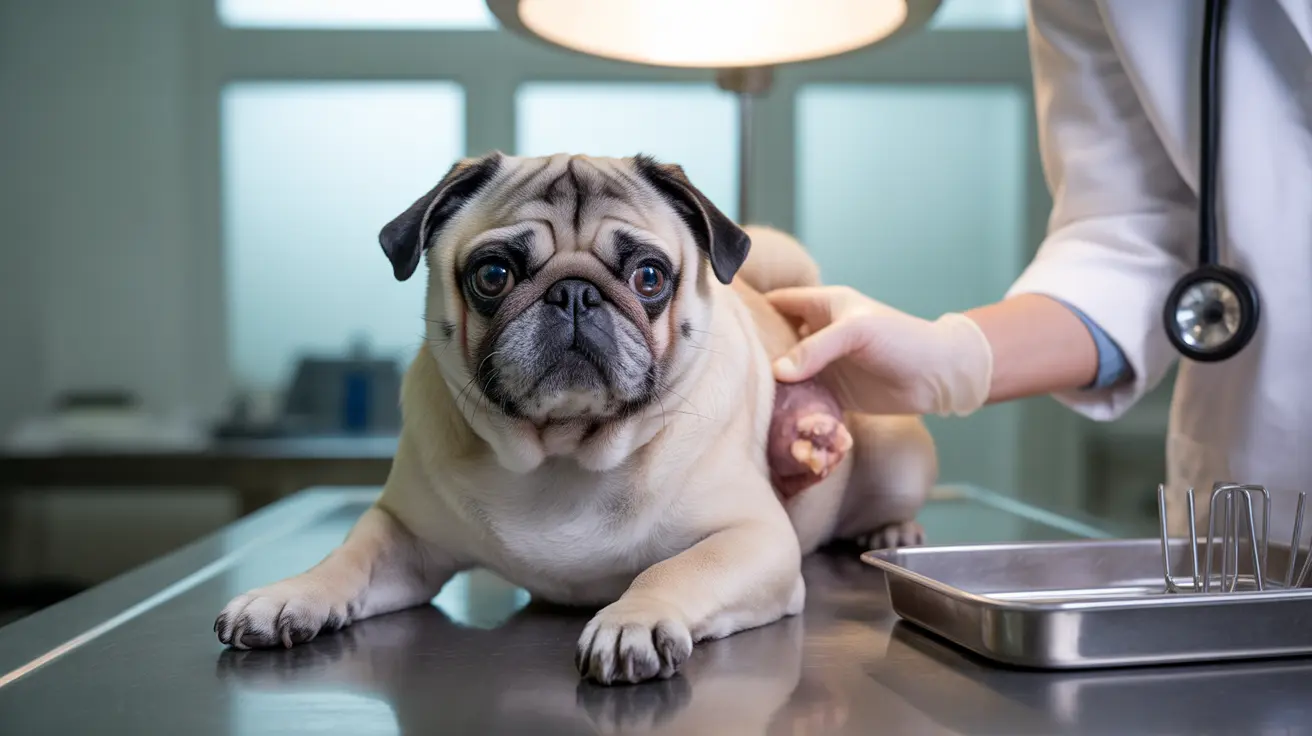When your dog develops scabs on their nipples, it can be a concerning sign that requires prompt attention. One of the most common causes is mastitis, a potentially serious inflammation and infection of the mammary glands that primarily affects nursing or recently pregnant dogs.
Understanding the causes, symptoms, and treatment options for mastitis and nipple scabs is crucial for protecting both mother dogs and their puppies. This comprehensive guide will help you recognize warning signs, know when to seek veterinary care, and learn how to prevent these conditions.
Understanding Mastitis in Dogs
Mastitis occurs when bacteria, most commonly Staphylococcus or E. coli, enter the mammary glands through cuts or abrasions on the nipples. This infection primarily affects lactating dogs but can occasionally develop in dogs experiencing false pregnancy or those with other underlying conditions.
The infection causes inflammation, swelling, and tissue damage that can lead to scab formation. In severe cases, the infection can progress to abscess formation or even tissue death (necrosis) if left untreated.
Signs and Symptoms to Watch For
Early detection of mastitis is crucial for successful treatment. Common symptoms include:
- Redness and swelling of the mammary glands
- Hot, painful nipples with visible scabs or sores
- Discolored or abnormal milk
- Reluctance to nurse puppies
- Lethargy and decreased appetite
- Fever in severe cases
Diagnosis and Treatment Options
Veterinarians diagnose mastitis through physical examination and may recommend additional tests such as milk cytology or bacterial culture. Treatment typically involves:
Medical Treatment
- Antibiotics to fight the infection
- Pain medication and anti-inflammatory drugs
- Regular expression of infected milk
- Warm compresses to promote drainage
Home Care Support
- Keeping the affected area clean and dry
- Applying cabbage leaf compresses to reduce swelling
- Maintaining proper hygiene in the whelping area
- Monitoring puppies' health and growth
Prevention Strategies
Preventing mastitis and nipple injuries requires vigilant care, especially for nursing dogs:
- Maintain clean, dry bedding
- Regularly inspect nipples for early signs of damage
- Trim puppies' nails to prevent scratching
- Address nursing problems promptly
- Monitor for signs of milk accumulation
When to Seek Emergency Care
Some situations require immediate veterinary attention:
- Signs of severe infection or abscess
- Dark or cold mammary tissue
- Significant behavioral changes
- Puppies failing to thrive
- High fever or extreme lethargy
Frequently Asked Questions
What causes scabs on a dog's nipples and how is mastitis involved?
Scabs on dog nipples often result from bacterial infections causing mastitis, trauma from nursing puppies, or other skin conditions. Mastitis leads to inflammation and tissue damage, which can form scabs during the healing process.
How can I tell if my lactating dog has mastitis and needs veterinary care?
Look for swollen, red, or hot mammary glands, presence of scabs or sores, abnormal milk discharge, reluctance to nurse, and systemic symptoms like fever or lethargy. Any of these signs warrant veterinary attention.
What are the best home treatments for a dog with mild mastitis and nipple scabs?
Under veterinary guidance, use warm compresses, gentle milk expression, and cabbage leaf compresses. However, antibiotics and professional care are usually necessary even in mild cases.
When should a dog with mastitis and nipple scabs be hospitalized or receive surgery?
Hospitalization is necessary for severe cases involving systemic illness, extensive tissue damage, or abscess formation. Surgery may be required if there's significant tissue death or if abscesses need surgical drainage.
How can I prevent mastitis and nipple injuries in nursing dogs?
Maintain excellent hygiene, regularly clean bedding, trim puppies' nails, monitor for early signs of infection, and ensure proper nursing practices. Address any nursing difficulties promptly to prevent milk accumulation.
Remember, while mild cases of mastitis can be managed with proper care, the condition can become serious quickly. Always consult with your veterinarian if you notice any concerning changes in your dog's mammary glands or overall health.






